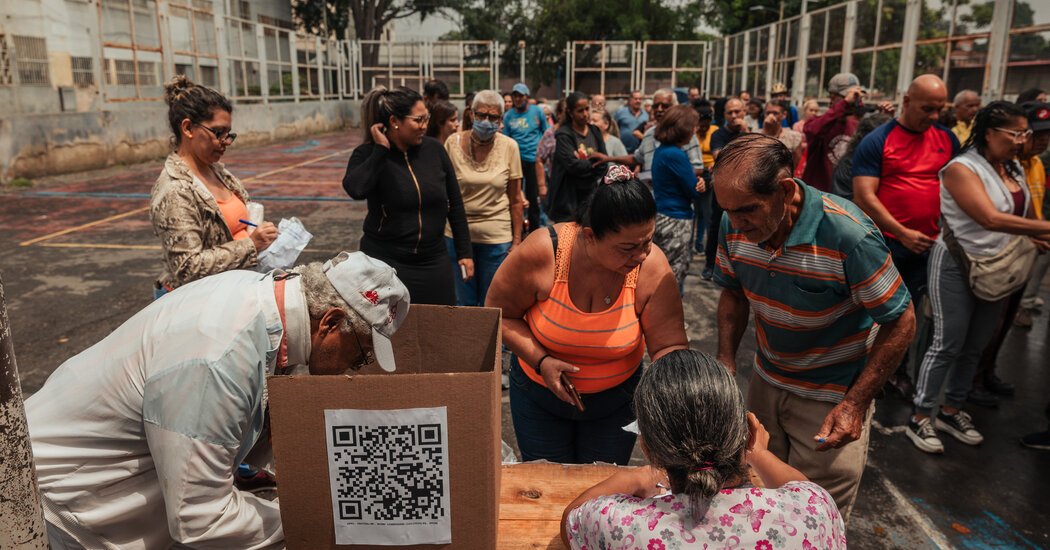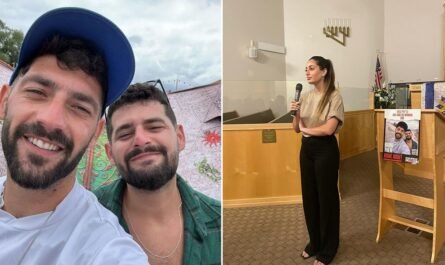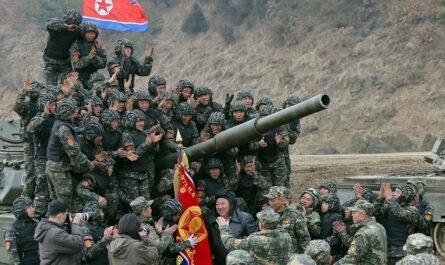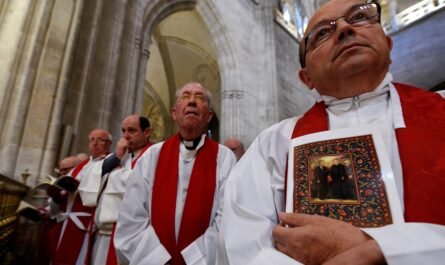The stakes could hardly be higher.
This July, for the first time in more than a decade, Venezuelans will vote in a presidential election with an opposition candidate who has a fighting — if slim and improbable — chance at winning.
Amid an economic and democratic crisis that has led more than seven million Venezuelans to abandon the country — considered among the world’s largest displacements — Nicolás Maduro, the country’s authoritarian president, has done something few thought he would: allowed an opposition candidate with widespread support to appear on the ballot.
Though largely unknown, the challenger is leading in several polls, underscoring how many Venezuelans are hungry for change.
Still, few have illusions that the vote will be democratic or fair. And even if a majority of voters cast their ballots against Mr. Maduro, there is widespread doubt that he would allow the results to become public — or accept them if they do.
Venezuela prepares to vote at a moment when the country is facing consequential issues that will resonate far beyond its borders.
They include overseeing the fate of the country’s vast oil reserves, the world’s largest; resetting — or not — battered relations with the United States; deciding whether Iran, China and Russia can continue depending on Venezuela as a key ally in the Western Hemisphere; and confronting an internal humanitarian crisis that has propelled a once prosperous nation into immense suffering.
A win for Mr. Maduro could drive Venezuela further into the hands of U.S. adversaries, intensify poverty and repression and spur an even larger exodus of people to head north toward the United States, where an immigration surge has become a central theme in the November presidential election.
His opponent is Edmundo González, a former diplomat who became the surprise consensus candidate of the opposition after its popular leader, María Corina Machado, was barred by Mr. Maduro’s government from running.
His supporters hope he can help the country cast aside 25 years of Chavismo, the socialist movement that began with the democratic election of Hugo Chávez in 1998 and has since grown more authoritarian.
Ahead of the July 28 vote, Mr. Maduro, 61, has in his grip the legislature, the military, the police, the justice system, the national election council, the country’s budget and much of the media, not to mention violent paramilitary gangs called colectivos.
Mr. González, 74, and Ms. Machado, 56, have made it clear that they are a package deal. Ms. Machado has been rallying voters at events across the country, where she is received like a rock star, filling city blocks with people making emotional pleas for her to save the country. Mr. González has stayed closer to Caracas, the capital, holding meetings and conducting television interviews.
In a joint interview, Mr. González said he was “taken by surprise” when Mr. Maduro allowed him to register as a candidate, and still had no clear explanation why.
While Mr. Maduro has held elections in recent years, a key tactic has been to ban legitimate challengers.
The last competitive presidential election was held in 2013, when Mr. Maduro narrowly beat a longtime opposition figure, Henrique Capriles. In the next vote, in 2018, the government barred the most popular opposition figures from running, and the United States, the European Union and dozens of other nations refused to recognize the results.
But in recent months, Ms. Machado said, the country has witnessed a series of events few thought possible: Mr. Maduro’s government allowed an opposition primary vote to go forward, in which turnout was enormous and Ms. Machado emerged as the clear winner; the opposition — infamous for its infighting — managed to coalesce around Ms. Machado; and when she wasn’t able to run, opposition leaders united to back a replacement, Mr. González.
“Never in 25 years have we entered an electoral process in a position of such strength,” Ms. Machado said.
(Both declined to say exactly what role Ms. Machado, if any, might take on in a González government.)
Three polls conducted inside the country showed that a majority of respondents planned to vote for Mr. González.
In a dozen interviews in different parts of the country this month, voters showed widespread support for the opposition.
“He is going to win, I am convinced of it,” said Elena Rodríguez, 62, a retired nurse in the state of Sucre. Ms. Rodríguez said that 11 family members had left the country to flee poverty.
Mr. Maduro still retains a slice of support inside Venezuela and can motivate people to the ballot box with the promise of food and other incentives.
One Maduro supporter in Sucre, Jesús Meza Díaz, 59, said he would vote for the current president because he trusted him to navigate the country through economic problems for which he blamed U.S. sanctions.
Perhaps the most important question, though, is not if Mr. González could attract enough votes to win — but whether Mr. Maduro is ready or willing to cede power.
The Maduro government has been choked by U.S. sanctions on the country’s vital oil industry, and some analysts say he allowed Mr. González to run only because it might help him sway Washington to ease up on the sanctions.
“I think the negotiation with the United States is what is making an electoral process possible,” said Luz Mely Reyes, a prominent Venezuelan journalist.
Mr. Maduro has hardly indicated that he is ready to leave office. He promised a large crowd of followers in February that he would win the election “by hook or by crook.”
Since January, his government has detained and jailed 10 members of Ms. Machado’s political team. Five others have warrants out for their arrest and are hiding out in the Argentine Embassy in Caracas.
Avi Roa, the wife of Emill Brandt, a leader in Ms. Machado’s party who has been detained since March, called his capture a “horrible terror.” Irama Macias, the wife of jailed Machado ally Luis Camacaro, called his detention “a very cruel thing” that “shouldn’t happen in any part of the world.”
A proposal in the legislature, called the Law Against Fascism, could allow the government to suspend Mr. González’s campaign at any moment, said Laura Dib, the Venezuela expert at the Washington Office on Latin America. “This is a constant risk,” she added.
If Mr. Maduro does give up power, it would almost surely be the result of an exit deal negotiated with the opposition.
Ms. Machado has argued repeatedly that her main challenge is to make Mr. Maduro see that staying in power is unsustainable — that his government is running out of money, that too many Venezuelans want him out and that Chavismo is crumbling from the inside.
“The best option is a negotiated exit,” she said in the interview, “and the later it comes, the worse it will be.”
The country’s economic situation is dire, much of Mr. Maduro’s base has turned against him and there are signs that Mr. Maduro is fearful of an internal rupture: He recently turned on a high-ranking ally, the oil minister Tareck El-Aissami, jailing him on accusations of corruption.
The move was seen as a warning to anyone who might challenge him from the inside.
But few people see Mr. Maduro as so weak that he would be forced to leave. And Mr. Maduro has a strong incentive to hold on: He and other officials in his government are being investigated by the International Criminal Court for crimes against humanity. He is also wanted by the U.S. government, which has offered $15 million for information leading to his arrest.
If Mr. Maduro did leave the presidency, he would almost surely want to be shielded from prosecution, something that could be difficult to guarantee.
Still, Ms. Machado and Mr. González, in the joint interview, indicated a willingness to negotiate a peaceful transition with the Maduro government before the election.
“We are absolutely willing to move forward in putting on the table all the necessary terms and guarantees,” said Ms. Machado, “so that all parties feel that it is a fair process.”
One senior American official said there was no indication that talks about Mr. Maduro’s departure were happening now.
But, the official added, Mr. Maduro’s government was still talking to U.S. officials and to the opposition, a sign that Mr. Maduro continued to seek international legitimacy and sanctions relief. That could make him change his posture, the official said, providing a sliver of optimism for the country’s future.
Isayen Herrera contributed reporting from Caracas, Venezuela; Nayrobis Rodríguez from Cumaná, Venezuela; and Genevieve Glatsky from Bogotá, Colombia.




